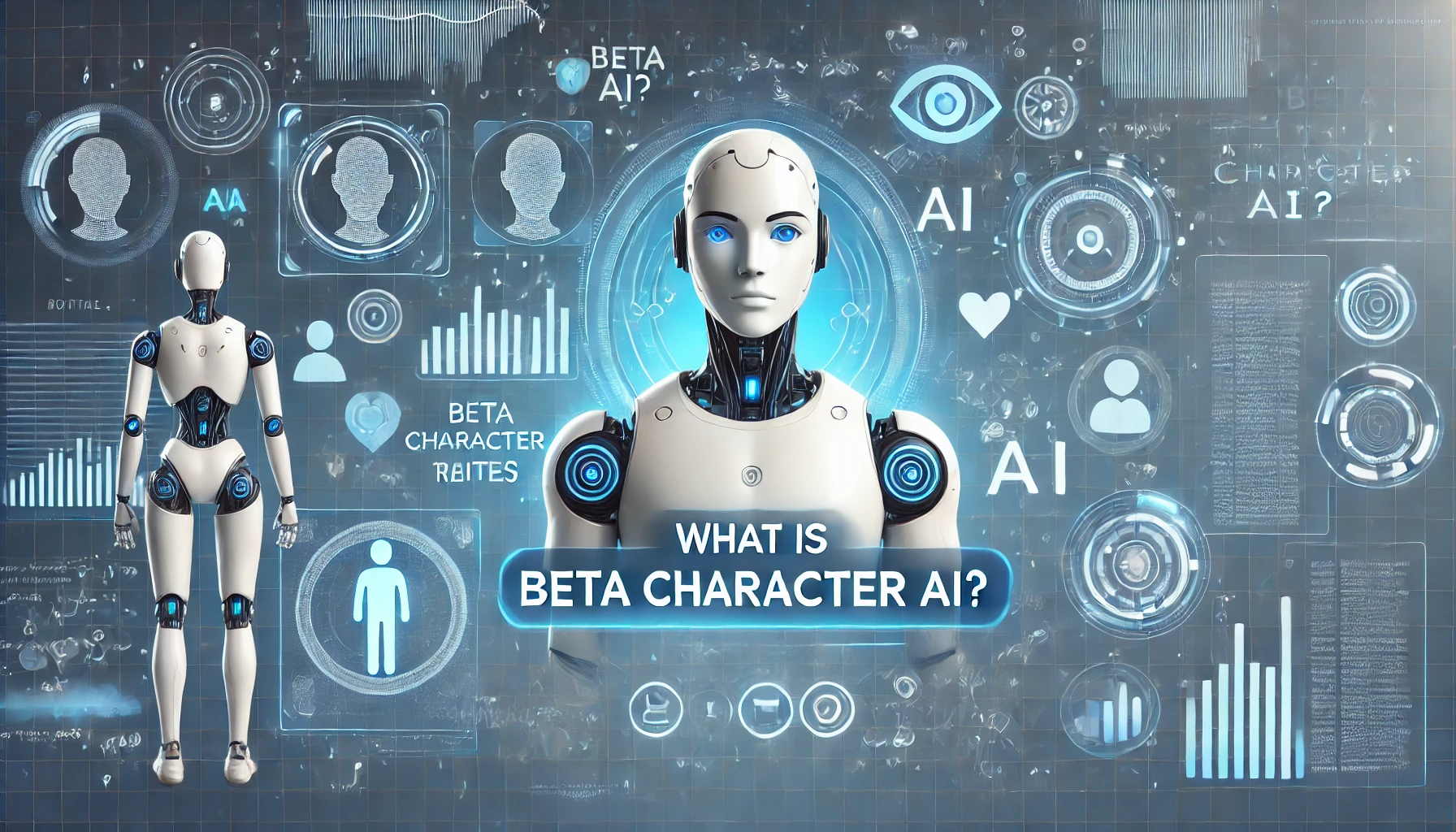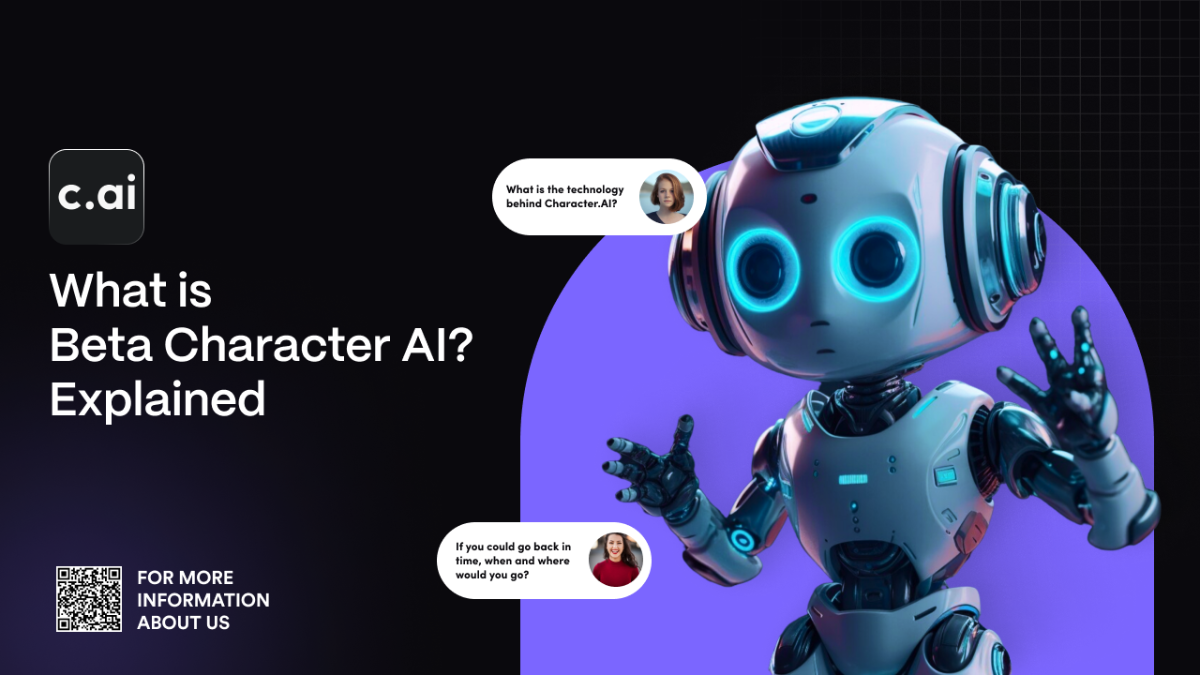Artificial intelligence (beta character ai) is advancing at a rapid pace, and one of its most exciting developments is Character AI. Character AI refers to intelligent virtual entities designed to mimic human-like personalities, emotions, and conversations. These characters are finding applications in everything from virtual companions to interactive storytelling, making the line between technology and imagination blur.
In this article, we’ll explore Beta Character AI—a concept at the cutting edge of these developments. We’ll break down how beta versions contribute to the evolution of interactive AI characters, discuss how users are interacting with these systems, and take a look at the implications for gaming, entertainment, and education. Whether you’re an AI enthusiast or curious about how technology is redefining creative experiences, this article offers you a complete insight into Beta Character AI.
What Is Beta Character AI?
Understanding the Beta Phase in Software

Before diving into what Beta Character AI is, let’s first understand the “beta phase” in the software world. Beta testing refers to the release of software in a preliminary version, available to select users or the public before a full launch. The purpose is to collect feedback and fix bugs, improving the product for its final release. In the case of AI, this phase is critical because it allows developers to fine-tune complex systems based on real-world interactions.
Beta Character AI refers specifically to virtual characters in their developmental stages, where the AI’s behavior and conversational abilities are still being refined. These beta versions help developers gather feedback on how the characters interact with users and how effectively they simulate emotions and thought processes.
AI Characters in Different Contexts
Character AI is used in several fields, including games, virtual assistants, customer service bots, and educational tools. When the beta phase is applied to these AI characters, it allows users to test new personalities, emotional responses, and interaction styles before the AI goes mainstream. For example, a beta character might be tested to gauge how well it can respond to sarcasm or offer emotionally supportive advice.
Beta Character AI offers both developers and users the opportunity to explore cutting-edge technology, ensuring that the final product is engaging, user-friendly, and as lifelike as possible.
How Beta Character AI Works: Behind the Technology
The Role of Machine Learning and NLP
At the core of Beta Character AI is machine learning (ML) and natural language processing (NLP). These technologies allow virtual characters to learn from interactions and improve over time. NLP gives AI the ability to understand and generate human-like language, helping virtual characters respond in meaningful and contextually appropriate ways.
Each interaction in the beta phase contributes to the training of the AI model. User inputs help the system learn nuances in communication—like when to be formal, casual, humorous, or empathetic. This feedback loop is essential for developing characters that feel natural in conversation.
Emotion Modeling and Adaptive Personalities
One of the most exciting aspects of Beta Character AI is emotion modeling. Developers aim to make AI characters behave as though they have emotions—whether it’s excitement, sadness, or curiosity. These virtual entities are also capable of adaptive personalities, which means they can change their behavior over time based on how users interact with them.
For example, a beta AI character in a game might become more competitive if a player frequently challenges it, or it could grow friendlier if treated kindly. These adaptive traits ensure a more engaging and realistic user experience.
Data and Ethics in Beta Testing
During the beta phase, user data is critical for improvement, but it also raises ethical concerns. Developers must be transparent about how they collect and use data, ensuring privacy and security for beta testers. Users should be aware that the AI is still in development and may not always behave perfectly—bugs, glitches, or unexpected responses are common in beta versions.
Use Cases of Beta Character AI
- Beta AI in Gaming: Creating Immersive Experiences
Gaming is one of the most exciting fields for Character AI. Imagine playing a role-playing game (RPG) where every character you meet has a unique personality that evolves based on your actions. Beta Character AI allows developers to test these characters, ensuring they react naturally to player choices and contribute to immersive storytelling.
Games like The Elder Scrolls and Mass Effect have long used character-driven narratives, but with Beta Character AI, these interactions are becoming more personalized and unpredictable. During the beta phase, players might test various scenarios, giving feedback on whether the AI characters are engaging and lifelike.
- Virtual Companions and Emotional Support Bots
Another significant application of Beta Character AI is in the realm of virtual companions. AI companions can provide emotional support, especially for users who experience loneliness or anxiety. However, getting the tone and empathy of these interactions right is crucial.
The beta testing phase helps developers fine-tune emotional responses. Feedback from users ensures that these virtual companions come across as caring and authentic, avoiding robotic or inappropriate responses. The goal is to create companions that offer genuine support and companionship, even though they are powered by algorithms.
- AI in Customer Service and Education
Character AI is also being developed for customer service chatbots and educational platforms. In these cases, beta testing helps developers assess whether the AI can handle real-world inquiries efficiently. For educational purposes, AI tutors and virtual assistants are becoming more common, guiding students through lessons and answering questions.
During the beta phase, users might interact with a character to test its teaching abilities, providing feedback on how well it explains concepts or offers hints when students are stuck. This ensures the final product is user-friendly and effective for educational purposes.
Benefits of Participating in Beta Character AI Programs
Early Access to Cutting-Edge Technology
One of the biggest advantages of participating in Beta Character AI programs is early access to new technology. Testers get to experience AI capabilities before they become widely available, providing a sneak peek into the future of interactive storytelling and virtual companionship.
Influence on Final Development
Beta testers have a direct impact on how the final product is shaped. Developers rely on user feedback to fine-tune personalities, improve interactions, and fix bugs. This collaborative process ensures that the final release meets user expectations and delivers a more engaging experience.
Personalization and Learning Opportunities
Interacting with Beta Character AI also offers users the opportunity to explore personalized experiences. For instance, gamers can develop relationships with AI characters that feel more authentic, while students can benefit from AI tutors that adapt to their learning styles.
Challenges and Limitations of Beta Character AI
Glitches and Imperfect Responses
Since the AI is still in development, beta testers should expect glitches, bugs, and unexpected behavior. These issues are a normal part of the beta phase, but they can sometimes result in frustrating experiences.
Ethical Concerns and Data Privacy
As AI becomes more advanced, ethical concerns around data privacy and the use of personal information arise. Developers must ensure that beta programs are transparent and secure, protecting user data throughout the testing process.
Unrealistic Expectations from Users
Some users may enter the beta phase with unrealistic expectations about how well the AI should perform. It’s important to remember that beta testing is a work in progress, and feedback is essential to improving the final product.
Conclusion: Shaping the Future with Beta Character AI
Beta Character AI is an exciting glimpse into the future of interactive technology, offering new possibilities in gaming, virtual companionship, education, and more. While these beta programs come with their share of challenges—such as glitches and ethical concerns—they provide invaluable opportunities for developers and users to shape AI’s evolution.
As these AI characters become more lifelike and adaptive, they promise to redefine how we interact with technology, blurring the lines between the digital and the real. Participating in Beta Character AI programs offers a chance to experience these innovations firsthand and contribute to the creation of more engaging, personalized virtual experiences.
With each interaction, these AI systems become smarter, more empathetic, and more responsive, ensuring that the future of Character AI is as exciting as it is transformative.




